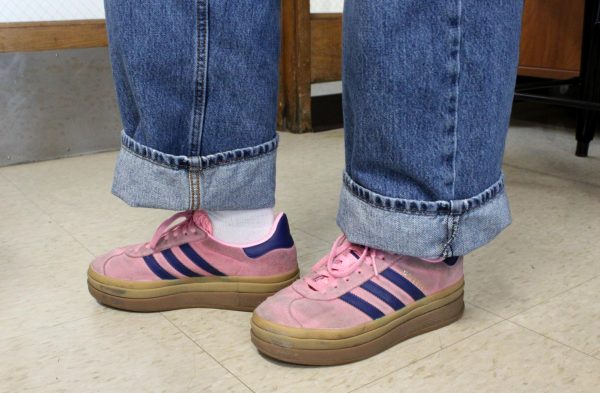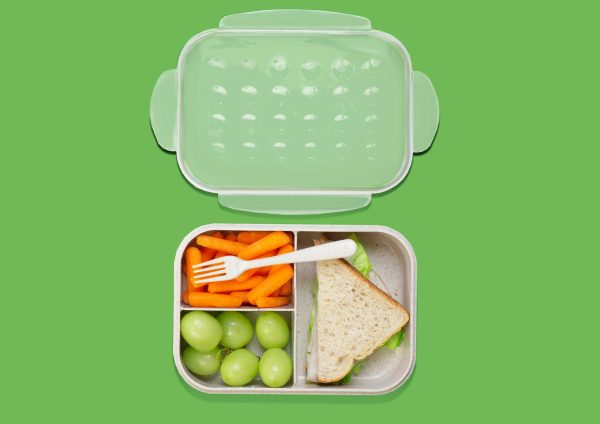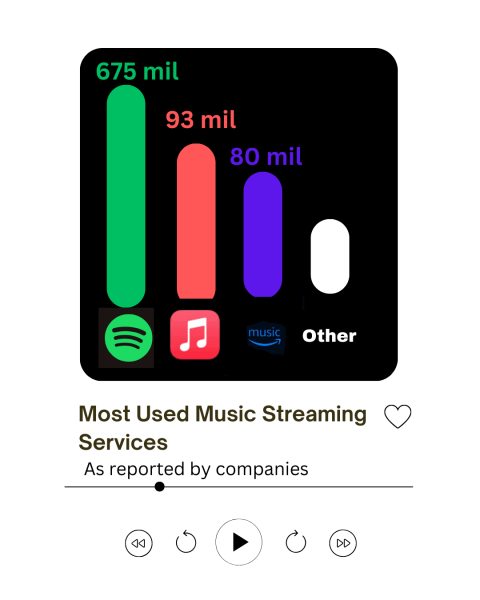Face-off: Competitive Culture At LHS
For: Jasmine Lafita
For the last four years, I’ve had the privilege of going to Libertyville High School. I’ve had a great experience, participating as much as I can in clubs and classes alike. I’ve worked hard to earn leadership roles within the school, and as a second-semester senior, I can say that I’m proud of what I’ve done.
One of the main factors that propelled me ahead and drove me to work hard was the competitiveness that exists at LHS. In the end, there are only a certain number of leadership positions that exist, and there is no way around that. To eliminate that level of competition would eliminate the entire concept of student-run organizations.
Because of that air of urgency hanging over me, I did whatever I could to not slip. I went to as many debate tournaments as I could, showed up at every Model UN meeting, wrote as much as I could for the very student magazine you’re reading now. And that urgency is the reason I’m the co-captain of Debate, on Model UN executive board, and editor-in-chief of Drops of Ink.
I’m grateful to have gone to a school where the pressure is far less than that of other schools, especially some in the North Suburban area. I’ve heard anecdotes from friends of mine who go to certain surrounding schools about cutthroat students desperate to destroy their peers over something as small as a club presidency.
I have never experienced that kind of pressure at LHS — often, when it comes to leadership positions and awards, I’ve had friendly competitions with my peers at most.
The degree of competition that exists at LHS is minimal and necessary. However, I will concede that this pressure could overwhelm some, but it helps others to thrive.
A common analogy exists when it comes to pressure that can be applied to any competition that exists at LHS — some students crack like eggshells, but others thrive and harden like coal.
This pressure still could be difficult for some, but a shift in mindset can help to alleviate it. We’re only able to control our response to situations. It may sound obvious, but all we can do is what we can do, meaning there’s no point in worrying about what we can’t control.
If we feel overwhelmed by pressure, the best thing we can do is look into ourselves to find out why, and then determine what we can do about it.
For example, you might be surrounding yourself with people who feel the need to put others down to get ahead. In that situation, you could move away from people like that and try to find friends who want to uplift you and others.
However, it’s not necessarily as simple as that. Introspection is difficult, and actively working to change yourself is even harder. In the end, though, it’s an essential part of growing as a person, and requires taking control of what you can change, and not stressing over what you can’t.
Against: Grace Huber
Most students, whether they realize it or not, are constantly competing against each other. Driven by outside expectations and our own desire to be better, we strive for perfect grades, pushing ourselves to be multi-sport athletes or to create or lead clubs. All of this is to construct a resume that looks worthwhile to colleges, our parents and our peers. I know that for me, and many of my classmates, this leads to a constant feeling of inadequacy and failure.
With pressures to be perfect squeezing from all sides, students at high-performing schools are considered to be an at-risk group– just like kids in poverty or foster care– for mental health issues and substance abuse, according to an article in the Washington Post. .
While parents, administrators and teachers are all concerned about lower test scores, peers have panic attacks and mental breakdowns in the bathrooms due to the relentless pressure.
The competitive culture, coupled with overwhelming expectations, leads to burnout, low self-esteem and a nagging sense of failure no matter how many times you succeed. I see this everyday in my classes, when my peers walk out of a test saying they failed, despite not knowing their grade. It’s not limited to academics either, with one of my classmates being concerned about their college prospects because they were only an 11, not 12, season athlete.
I was always a high performing student, taking as many APs as were available to me, but somehow it was never enough. I am constantly comparing myself to my classmates, pitting my course load against their own and dissecting my involvement in activities with what they do. It weighs on you.
Eventually, I collapsed under the weight. Every time I sat down to work on an assignment, doubts about my ability, worries about it being perfect, and panic about not getting an A rushed through my head, making me unable to accomplish anything. I wouldn’t blame my collapse solely on the competitive nature of LHS, but there’s not a doubt in my mind that it played a part.
It’s much harder to unlearn the competitive and perfectionist mindset that comes with years in the Libertyville school district than it is to let it take hold and control you. Eventually, we are going to have to unlearn it, in order to let mental health and safety take priority. As my therapist likes to say, everyone that has grown up with this mindset will burnout, it’s only a matter of when.








